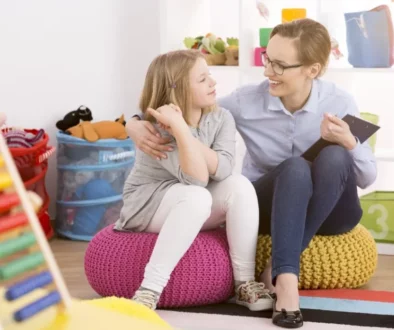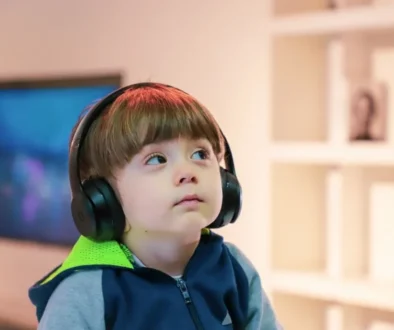Navigating the Road to an Autism Diagnosis: A Family’s Guide
When you notice your child avoids eye contact, gets really focused on certain objects, or doesn’t respond when called, it can make any parent worried. These might be early signs of autism, a condition with many different forms, including moderate autism, which can be hard to pinpoint.
Many families feel lost about what to do next when they start thinking about autism.
Where should you begin? What should you look out for? How do you deal with all the tests and different doctors’ opinions?
This guide is here to help clear up the confusion for families facing these tough questions. Let’s get started.
Autism Spectrum: What to Know?
The autism spectrum includes a variety of conditions, all of which affect individuals in different ways. Some people with autism might need only a little support in their daily lives, while others might require more help. The level of support needed often relates to the intensity of their symptoms.
At one end of the spectrum, you’ll find what is typically referred to as “mild” autism. People with mild autism often have good language skills and average to above-average intelligence. They might struggle with social situations, finding it hard to make eye contact or understand social cues, but they manage to live relatively independent lives.
Moderate autism involves more noticeable challenges. Individuals with moderate autism might have clearer difficulties with communication and social interaction. They might speak in full sentences and engage in communication, but their conversation might be largely repetitive and focused on specific interests.
They often benefit from structured support in both school and everyday life to manage their symptoms effectively.
At the severe end of the spectrum, individuals may have very limited speech or do not speak at all, and they may have intellectual disabilities or other health-related issues that require significant support.
What Are the Early Signs of Moderate Autism?
Kids with moderate autism might show certain behaviors that hint at the condition but aren’t always obvious right away. They often find it tough to talk in ways other kids do.
They might repeat the same ideas when they talk, especially about things they really like. Starting a chat or keeping it going might be hard for them.
Social situations can also be tricky. These kids might want to make friends but struggle to join in games or follow social rules. Sometimes, they might not react the right way to people’s feelings or might miss social signals that others pick up easily.
Another clue is if they stick to the same actions over and over, like arranging their toys in a line or turning a light on and off many times. They might also get upset if their regular routines are changed.
Developmental Delays 101
Developmental delays are when kids don’t reach milestones like:
- Talking
- Playing
- Interacting as expected for their age
For example, if a child isn’t babbling by their first birthday, speaking simple words by 16 months, or putting two words together by two years, these might be signs of delays.
Delays in how they connect with others are important too. If a baby doesn’t smile or interact a lot with people by six months, or doesn’t share interests like showing toys or expressing joy by nine months, these could be early signs.
Also, thinking and learning skills matter. A child might show delays if they don’t play pretend games by 18 months or have trouble following simple instructions.
These delays don’t mean a child definitely has autism, but they suggest it might be a good idea to check with a doctor. Spotting these signs early can help.
Getting help early can make a big difference in helping the child learn and grow in the best way possible.
Journey to Diagnosis: What to Expect?
The journey often starts at home. Parents might notice something about their child’s behavior or get comments from teachers or family members. If these behaviors match what we know about autism, parents might start looking for more information or help from local groups or resources.
The first major step is to talk to the child’s regular doctor, like a pediatrician. This doctor can use special checklists to see if the child might have autism. They will look at how the child behaves, listen to what parents have noticed, and compare this to what’s expected for kids at that age.
If the pediatrician thinks it’s possible the child has autism, they will send the family to a specialist like a developmental pediatrician. These experts do more thorough checks.
They might watch the child, talk to them, and use tests to learn about the child’s skills and behavior.
Living With Autism Symptoms: What Comes Next?
When a child is diagnosed with moderate autism, it marks the beginning of a new journey for the family.
After getting a diagnosis, it’s important to start by setting up a support plan. This plan should be based on your child’s unique needs and strengths.
This will include goals that help them day-to-day and in the long run. You’ll work with a team that might include doctors, therapists, and teachers to make this plan.
There are many types of help available that can make a big difference for your child, such as:
- Behavioral therapy
- Speech therapy
- Occupational therapy
- Physical therapy
Making sure your child gets the right support at school is also key. These plans help make sure your child learns in a way that works best for them.
Getting a diagnosis of autism is a big step, but it’s just the beginning. With the right support and plans in place, your child can learn and grow in their own unique way.
Move Forward with Developmental Pediatrics
Navigating the diagnosis and care of moderate autism is a profound journey that begins with understanding and leads to meaningful support. With specialized support, children can thrive and reach their full potential.
At Developmental Pediatrics, Dr. Mike Rios and Lawanna Smith offer a unique, personalized assessment process designed to make each family’s experience as informative and comfortable as possible.
Ready to take the next step? Contact us today to schedule your visit and see how we can support your child’s development.



